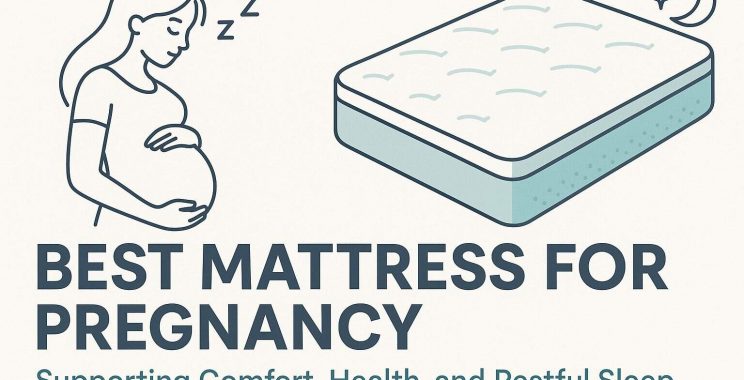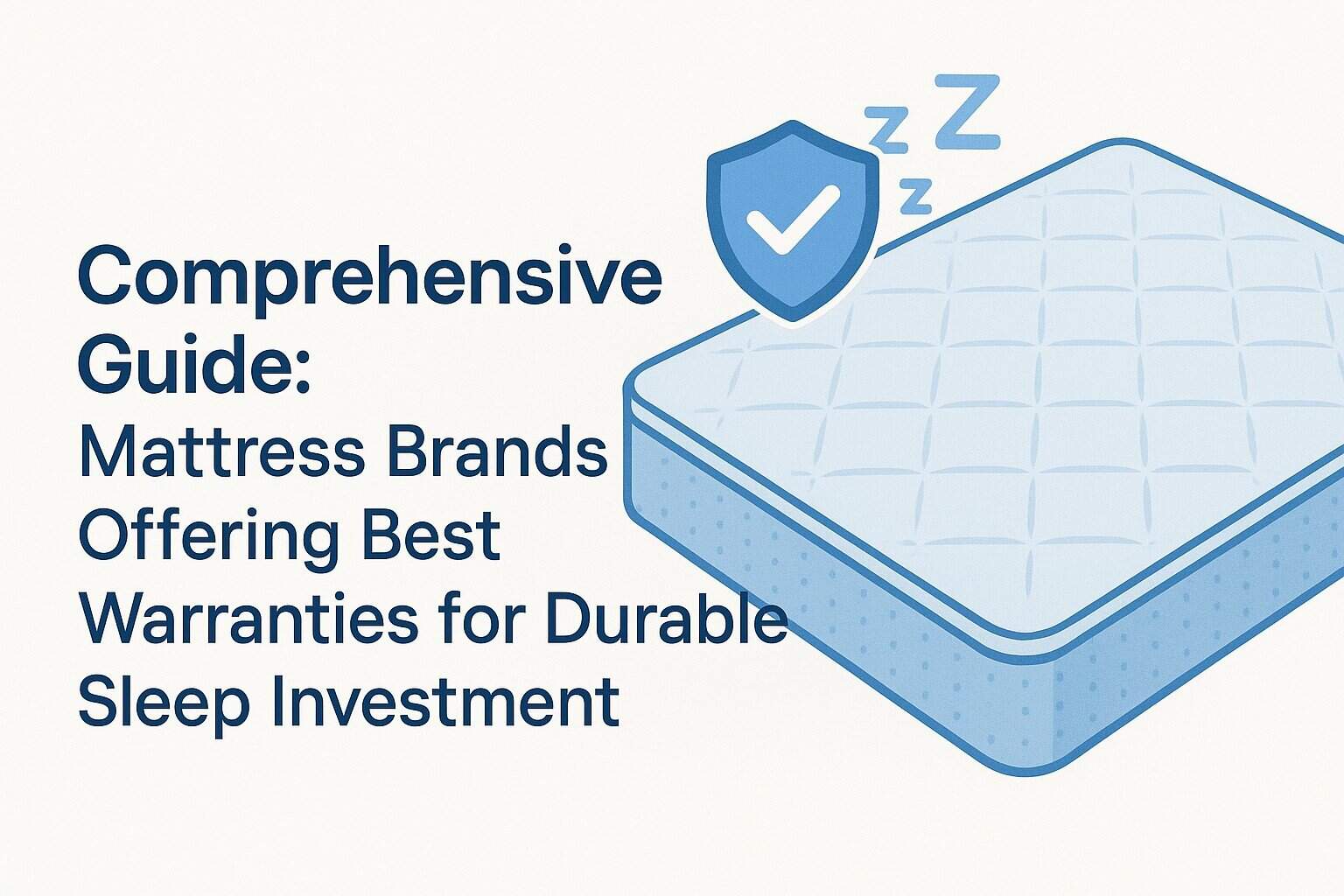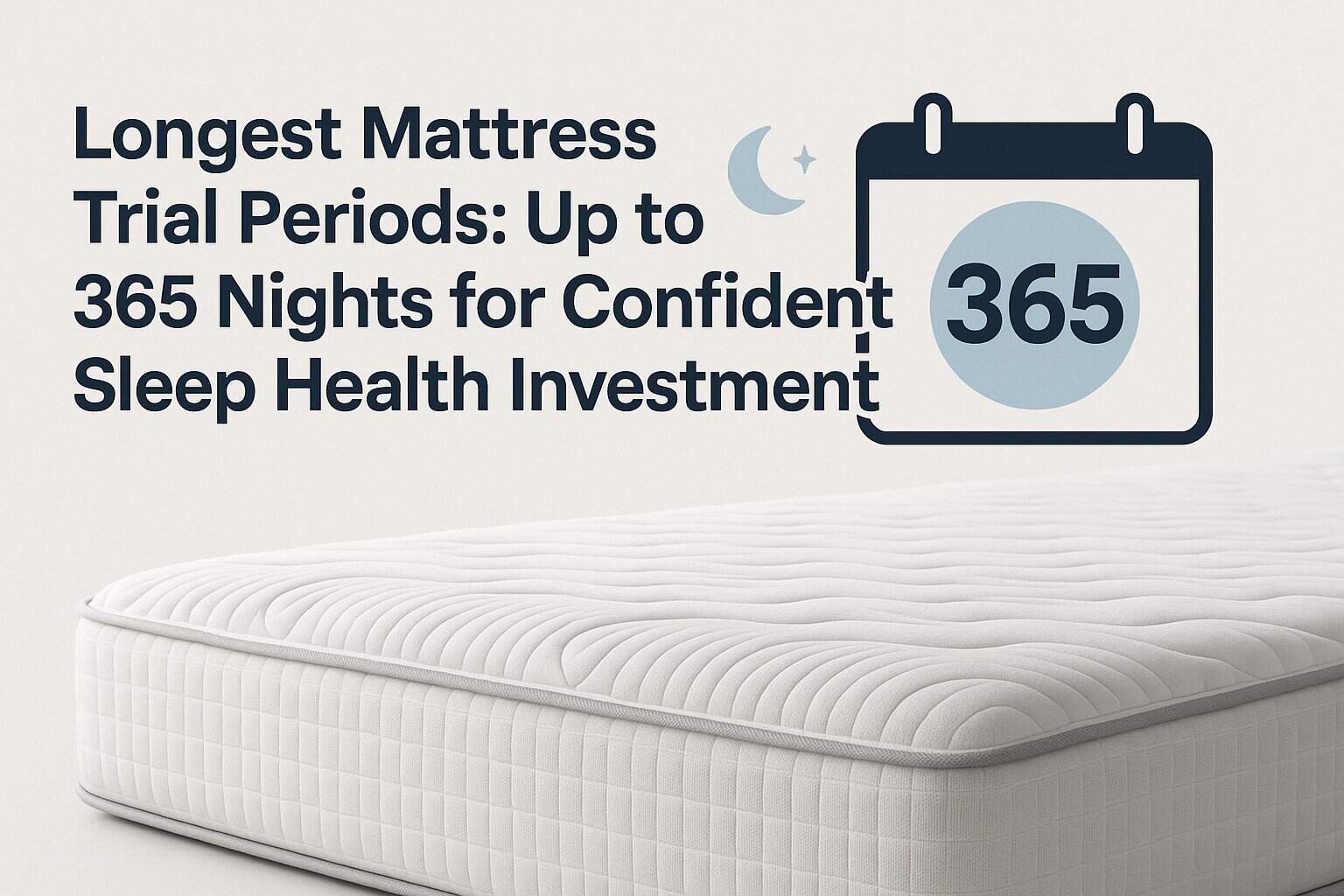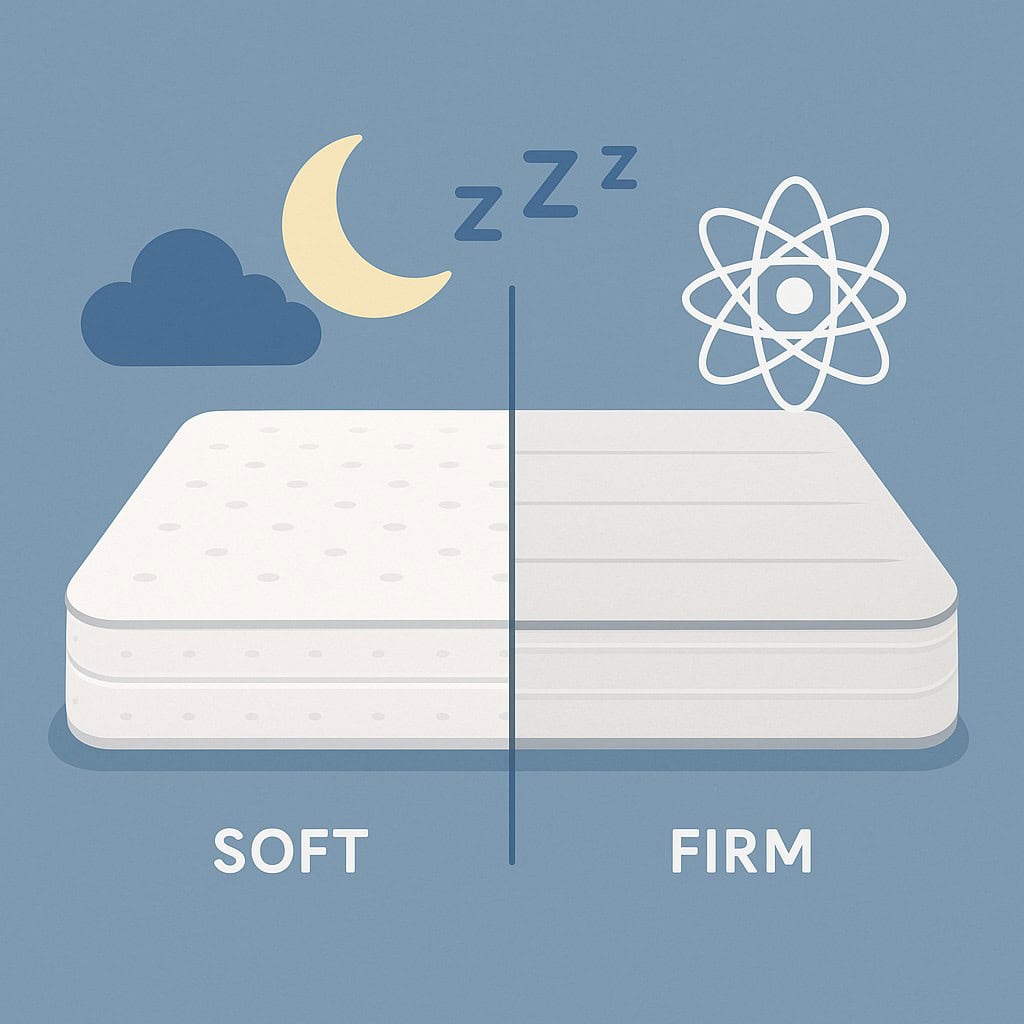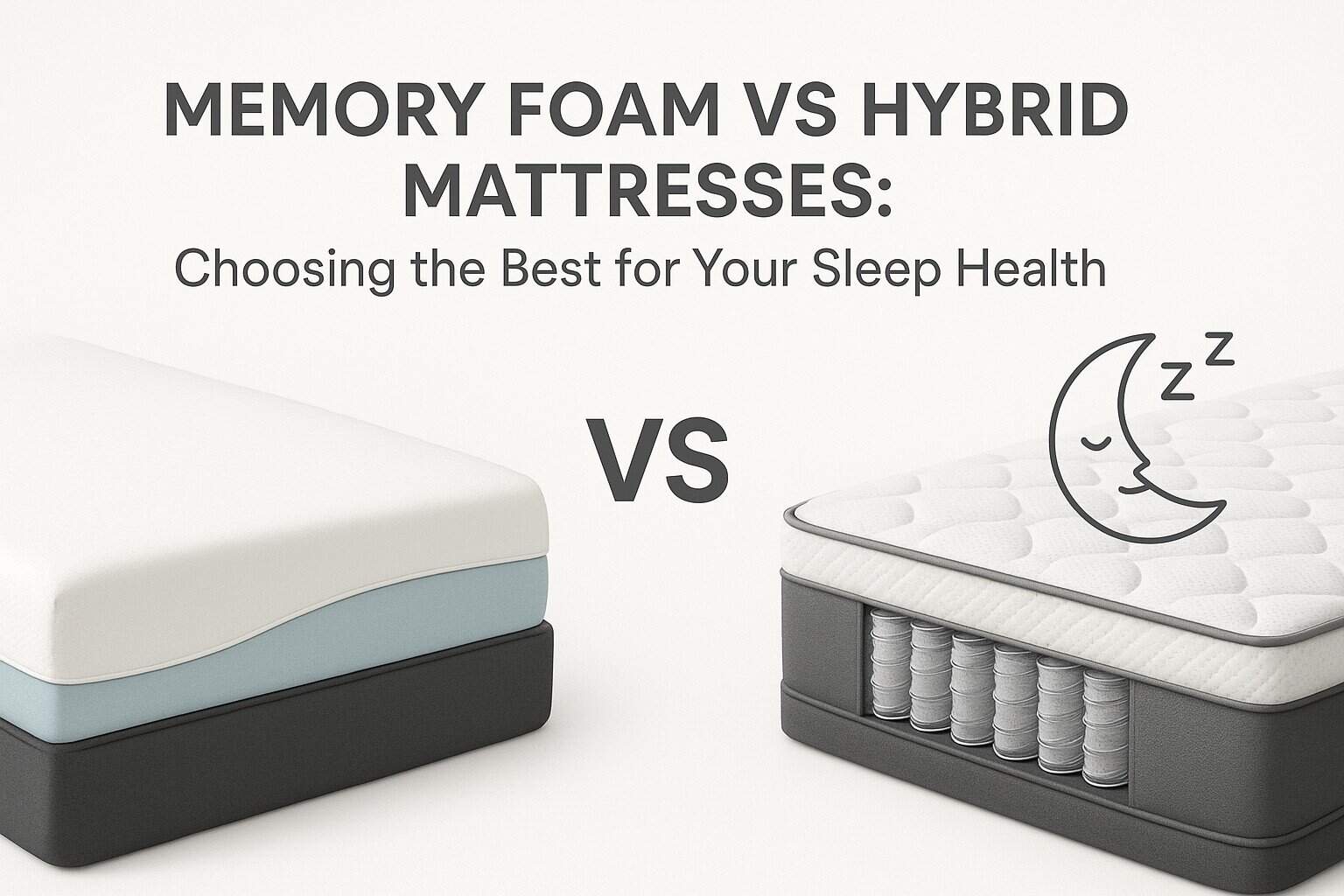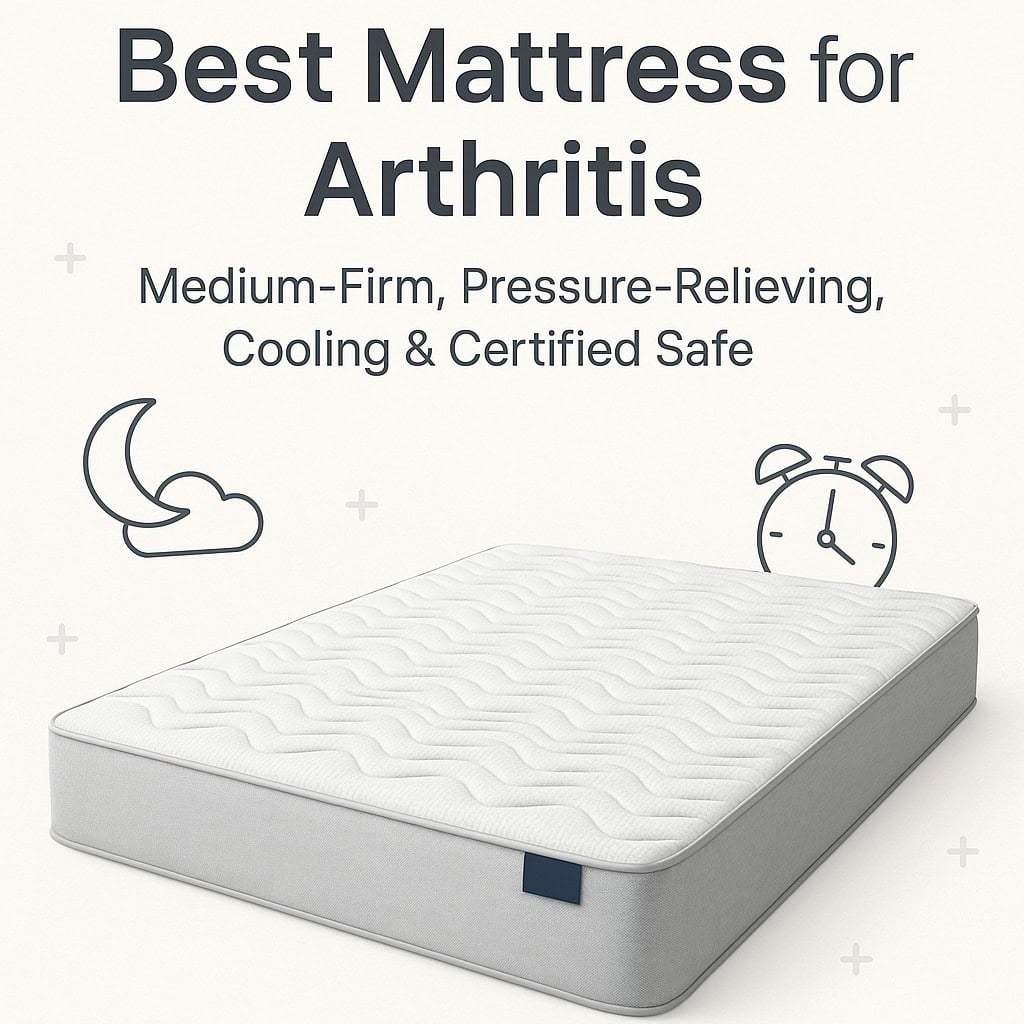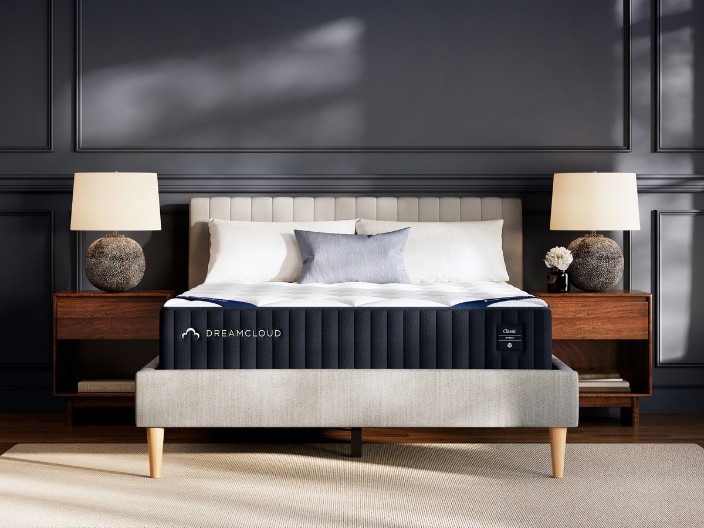Best Mattress for Pregnancy: Supporting Comfort, Health, and Restful Sleep
Share
Fact checked
Reviewed by experts
Updated
October 30, 2025
Quick read
5 mins to read
List of Content
Pregnancy brings profound changes to the body, many of which affect sleep quality and comfort. Finding the best mattress for pregnancy is crucial to help manage common discomforts, support proper spinal alignment, and mitigate issues like restless legs or acid reflux that often interfere with restful sleep. The right mattress can significantly improve sleep health, contributing to better overall well-being for both expectant parents and their developing baby.
This comprehensive guide explores the key factors to consider when choosing a mattress during pregnancy, grounded in sleep science and medical understanding of maternal physiology. We’ll explain how mattress construction, firmness, pressure relief, and temperature regulation impact sleep for pregnant individuals. This resource aims to empower you with evidence-based knowledge to help you make informed mattress decisions during this important life stage.
Why Mattress Choice Is Critical During Pregnancy
Pregnancy entails unique physical demands that can negatively affect sleep, including increased body weight, hormonal changes, and altered circulation. The second and third trimesters often bring discomfort – back pain, pelvic pressure, and frequent nighttime urination, for example – all of which can disrupt sleep continuity. Research shows that poor sleep during pregnancy is associated with heightened risks of gestational diabetes, hypertension, and adverse mental health outcomes such as anxiety and depression ([Study: Sleep Medicine Reviews, 2022]).
Given these challenges, a supportive and comfortable mattress is an essential component of optimizing sleep posture and minimizing pain. Your mattress must alleviate pressure on sensitive areas such as the hips and lower back, while accommodating your growing abdomen. Additionally, temperature regulation becomes even more crucial: due to increased basal body temperature during pregnancy, pregnant individuals are more prone to night sweats and overheating ([Study: Journal of Clinical Sleep Medicine, 2020]). The proper mattress choice can help address these physiological changes, facilitating deeper, more restorative sleep.
Key Mattress Features to Prioritize for Pregnancy
1. Optimal Firmness for Spinal Alignment
Firmness refers to your mattress’s feel, and how much it “sinks” when you lie on it. For pregnant individuals, medium-firm mattresses typically strike an ideal balance: they offer adequate support to maintain neutral spinal alignment, without being so hard that pressure points cause discomfort. Proper spinal alignment reduces strain on ligaments and muscles stretched during pregnancy and can alleviate back pain, which affects an estimated 50–70% of pregnant women ([Study: American Journal of Obstetrics and Gynecology, 2019]).
Mattresses that are too soft may fail to support the abdomen and back adequately, causing sagging and misalignment. Alternatively, excessively firm mattresses may increase pressure on heavier areas such as hips and shoulders, causing painful and often disrupted sleep. Look for a mattress that distributes weight evenly, while contouring sufficiently around your body’s curves.
2. Pressure Relief Through Contouring Materials
Pressure relief refers to a mattress’s ability to conform to your body, reducing stress and pain on joints and muscles. Memory foam mattresses excel in this category thanks to their viscoelastic properties, which allow foam cells to compress under heat and pressure to mold closely to the body. This minimizes localized pressure points, notably on your hips, pelvis, and shoulders – particularly valuable during pregnancy, as these areas are already under stress.
Memory foam constructions reduce discomfort and the need for readjustment during sleep, leading to better sleep continuity. Studies from the National Sleep Foundation suggest that pressure-relieving surfaces reduce nighttime tossing and turning by up to 30%, an important factor for pregnant individuals who wake frequently throughout the night ([Study: National Sleep Foundation, 2021]).
Hybrid mattresses also balance pressure relief with responsive support by combining conforming memory foam with innerspring coils. Coils provide a level of support and motion isolation that assists with weight distribution while maintaining comfort. Hybrid designs, found in mattresses like DreamCloud, incorporate individually-wrapped coils beneath pressure-absorbing foam layers, yielding both effective spinal support and contouring comfort.
3. Temperature Regulation to Counteract Increased Heat Sensitivity
Pregnant individuals often experience higher core body temperatures and night sweats, partly due to hormonal shifts and increased metabolism. This can definitely exacerbate discomfort, especially if your mattress traps heat. Choosing a mattress with breathability and cooling features is essential.
Mattresses constructed with breathable foams, cooling fibers, phase change materials, and coil springs enhance airflow and heat dissipation. For example, hybrid mattresses with coil systems promote ventilation when compared to memory foam mattresses. When it comes to memory foam, modern technologies like gel-infused layers or cooling fibers woven into the covers can keep you cool throughout the night.
Natural materials such as organic latex and wool, found in certified organic mattresses like Awara, offer inherent moisture-wicking and temperature-regulating properties without any synthetic chemical treatments. These eco-friendly options provide breathable support while meeting strict environmental and safety standards, making them particularly appealing for health-conscious consumers.
4. Edge Support and Stability for Mobility
As mobility can be affected during pregnancy due to increased size and joint laxity, mattress edges that offer stability are important. Enhanced edge support makes it easier and safer to get in and out of bed without the risk of slipping or falling.
Good edge support also increases usable sleeping surface, which can be beneficial when sharing the bed, as pregnant individuals often shift positions to find comfort.
5. Hypoallergenic and Low-Emission Materials
Pregnancy can heighten sensitivity to allergens and chemical exposures, potentially impacting respiratory comfort and overall health. Choosing mattresses made with hypoallergenic materials and certifications such as CertiPUR-US (which verify low emissions of volatile organic compounds) helps minimize exposure to irritants. Organic mattresses certified by GOTS and GOLS provide additional reassurance by eliminating synthetic fire retardants and adhesives.
Additional Considerations for Mattress Shopping During Pregnancy
Sleep Position Accommodation
Side sleeping, particularly left lateral decubitus position, is often recommended during pregnancy to optimize blood flow to the placenta and reduce pressure on internal organs ([Study: American Pregnancy Association, 2018]). Mattresses that contour well to the body’s curves facilitate this position by cushioning the hips and shoulders, reducing discomfort and nerve compression.
Durability and Long-Term Support
Pregnancy-related weight gain and changes require a mattress that retains its supportive properties over time. High-quality foams, durable coil systems, and natural latex materials generally resist sagging and indentation better than low-density foams. This longevity ensures ongoing comfort beyond pregnancy, accommodating postpartum recovery and beyond.
Return Policies and Sleep Trials
An extended sleep trial period allows expectant parents to test mattress comfort and support in the context of their evolving needs. Companies offering generous trial periods, often around 365 nights, enable consumers to make adjustments with less risk, which is particularly important as comfort preferences may change throughout pregnancy.
Use of Accessories for Enhanced Comfort
While mattress choice is foundational, pregnancy pillows and adjustable bed bases can complement sleep quality by offering additional support and position customization. Some mattress types pair better with adjustable bases, enhancing spinal alignment and comfort during nighttime bathroom visits.
Summary of Evidence-Based Mattress Recommendations for Pregnancy
Current research highlights the importance of pressure relief, spinal support, and temperature regulation to improve sleep outcomes during pregnancy. Medium-firm to medium mattresses with contouring foam layers and breathable construction best address these needs. Hybrid models incorporating individually wrapped coils and cooling technology offer combined benefits of support and airflow, critical for managing increased body weight and temperature sensitivity.
Memory foam mattresses with gel-infused layers balance comfort and cooling, while organic latex and natural fiber mattresses provide hypoallergenic, temperature-stabilizing options without synthetic additives. Budget-friendly mattresses with certified safe foams can also meet several pregnancy-related sleep needs, emphasizing that safety and basic support need not be compromised by price.
Key Takeaways for Choosing the Best Mattress for Pregnancy
- Mattress firmness ideally falls in the medium to medium-firm range to maintain spinal alignment while relieving pressure on hips and shoulders.
- Pressure-relieving materials like memory foam or latex reduce joint discomfort and minimize nighttime repositioning.
- Temperature-regulating features, including breathable foams, coil support, gel-infused layers, or natural fibers, help manage pregnancy-related heat sensitivity.
- Edge support enhances stability and ease of movement, important during mobility challenges in pregnancy.
- Hypoallergenic, low-emission, and certified materials reduce risk of chemical irritation and support respiratory comfort.
Conclusion
Choosing a mattress during pregnancy demands careful consideration of unique physiological changes impacting sleep comfort and health. Prioritizing medium-firmness, pressure relief, cooling capabilities, and hypoallergenic materials supports the body effectively throughout pregnancy’s evolving stages. Mattress constructions including hybrid models with coil support, gel-infused memory foams, and organic latex exemplify how modern sleep surfaces address these technical requirements.
Armed with an understanding of mattress features grounded in sleep science and medical research, expectant parents can approach mattress shopping with greater confidence. Such informed choices promote restorative sleep, easing pregnancy discomforts and contributing to maternal and fetal well-being during this pivotal life phase.
This website does not offer medical advice nor professional medical services; rather, it is provided solely for educational, informational, and/or entertainment purposes. Individuals seeking medical advice should consult a licensed physician. The information provided should not be used for diagnosis or treatment of any condition, disease, or injury. When you have a medical condition, you should always talk to licensed doctor or other certified medical professional. You should never delay seeking professional medical advice or treatment based on the contents of this website. Call 911 or immediately go to the nearest emergency room if you think you may have a medical emergency. The contents of this website are provided “as-is”, Sleep Authority and its parent, subsidiaries, affiliates, employees, contributors disclaim any warranty of the information contained herein. Please contact using contact form to report any errors, omissions, misinformation, or abuse.
